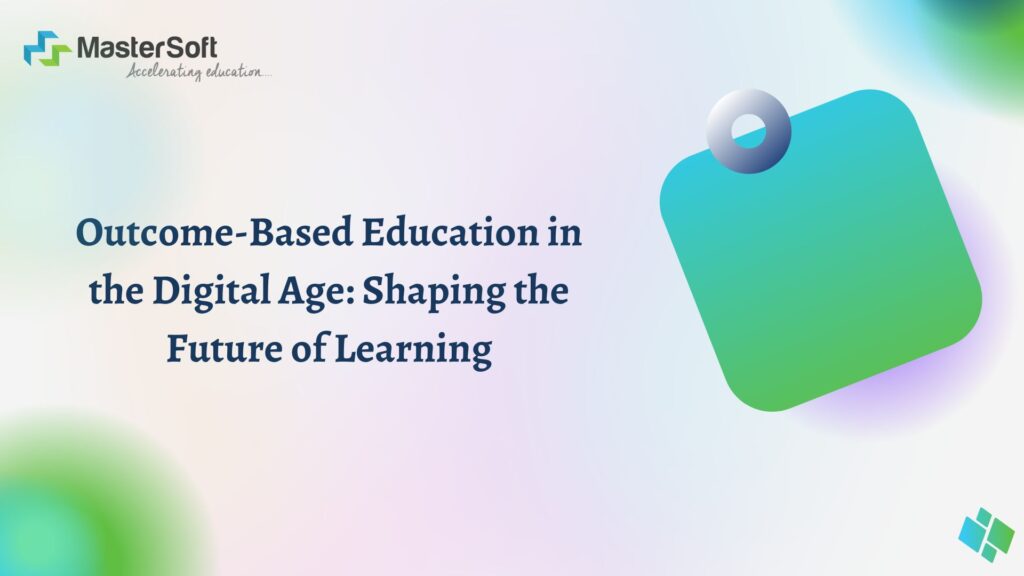In the fast-paced landscape of education, the integration of technology has brought about significant changes in teaching methodologies and learning outcomes. One such approach gaining traction is Outcome-Based Education (OBE), which focuses on defining specific learning outcomes and assessing students based on their achievement of these outcomes rather than mere completion of courses or accumulation of credits. In the digital age, OBE presents a promising framework that not only enhances the learning experience but also prepares students for the demands of the modern world.
Understanding Outcome-Based Education
At its core, Outcome-Based Education centers around clearly defined learning outcomes that students are expected to achieve by the end of a course or program. These outcomes are predetermined and serve as the foundation for designing curriculum, instruction, and assessment strategies. Unlike traditional education models that primarily emphasize content delivery, OBE places equal importance on the mastery of skills, competencies, and real-world application of knowledge.
The Role of Technology
In the digital age, technology acts as a catalyst for the implementation of Outcome-Based Education. Online platforms, interactive learning tools, and multimedia resources provide students with diverse avenues to engage with course content and achieve learning outcomes. Virtual simulations, augmented reality, and gamified learning experiences not only make learning more interactive and enjoyable but also facilitate the development of critical thinking, problem-solving, and digital literacy skills.
Personalized Learning
One of the key advantages of OBE in the digital age is its ability to support personalized learning experiences. Through adaptive learning technologies and data analytics, educators can tailor instruction to meet the individual needs, interests, and learning styles of students. By providing targeted feedback and adaptive learning pathways, technology enables students to progress at their own pace and focus on areas where they need additional support, thus maximizing their learning outcomes.
Enhancing Collaboration and Communication
Digital tools and platforms also promote collaboration and communication among students, educators, and stakeholders. Online forums, discussion boards, and collaborative projects facilitate peer-to-peer learning, knowledge sharing, and collective problem-solving. Furthermore, technology enables seamless communication between students and instructors, breaking down barriers of time and space and fostering a sense of community and engagement within the learning environment.
Assessing Mastery and Feedback
In the digital age, assessment in Outcome-Based Education goes beyond traditional tests and exams. Technology allows for the implementation of authentic and performance-based assessments that accurately measure students’ mastery of learning outcomes. From multimedia presentations to project portfolios, digital assessments provide students with opportunities to demonstrate their understanding and application of knowledge in real-world contexts. Moreover, technology enables timely and constructive feedback, empowering students to reflect on their progress and make continuous improvements.
Overcoming Challenges
While Outcome-Based Education in the digital age offers numerous benefits, it also presents challenges that educators and institutions must address. One such challenge is ensuring equitable access to technology and digital resources, particularly for students from disadvantaged backgrounds. Moreover, integrating technology into pedagogical practices requires ongoing professional development and support for educators to effectively leverage digital tools and platforms. Additionally, concerns related to data privacy, security, and digital equity must be addressed to ensure a safe and inclusive learning environment for all students.
Conclusion
Outcome-Based Education in the digital age holds immense potential to transform the way we teach and learn. By embracing technology and focusing on defined learning outcomes, educators can create engaging, personalized, and impactful learning experiences that prepare students for success in an ever-evolving world. As we navigate the challenges and opportunities presented by the digital age, Outcome-Based Education serves as a guiding framework that empowers students to achieve their full potential and thrive in the 21st-century landscape of learning.


